COOLBRICKS
With a mission is to provide low-income families with affordable housing solutions that are truly affordable, safe, circular and cool, Starting in Uganda, CoolBricks are 100% natural earthen, cow-dung bio-stabilized bricks provide more affordable, safer, healthier housing solutions to low-income families. CoolBricks contain no cement and require no fossil fuels. They s are strong enough to build 2-story houses and and are water resistance in rainy environments.
100% CROP RESIDUE PACKAGING
Every year India alone generates more than 500 million tonnes of crop waste and 16% of it is burnt on the fields, releasing 150 million tonnes of CO2 into the atmosphere. Craste collects the crop residue from the farmers by incentivizing them. The residue is treated and converted into pulp using their patent pending circular fiber technology. The tree-free pulp is further converted into paper which is used in various packaging applications.
GUIDING THE RUNOFF
Through the use of a popular and vernacular construction system to build contention walls called llantimuro or tire-wall, this project takes advantage of the existing on-site debris and the millions of used tires that are yearly imported from the USA to Mexico, uselessly piled in border cities such as Tijuana, to build a series of earth and concrete platforms, held by tire-wall contention walls. These now serve as public and recreational spaces that also connect people living at both sides of the ravine.
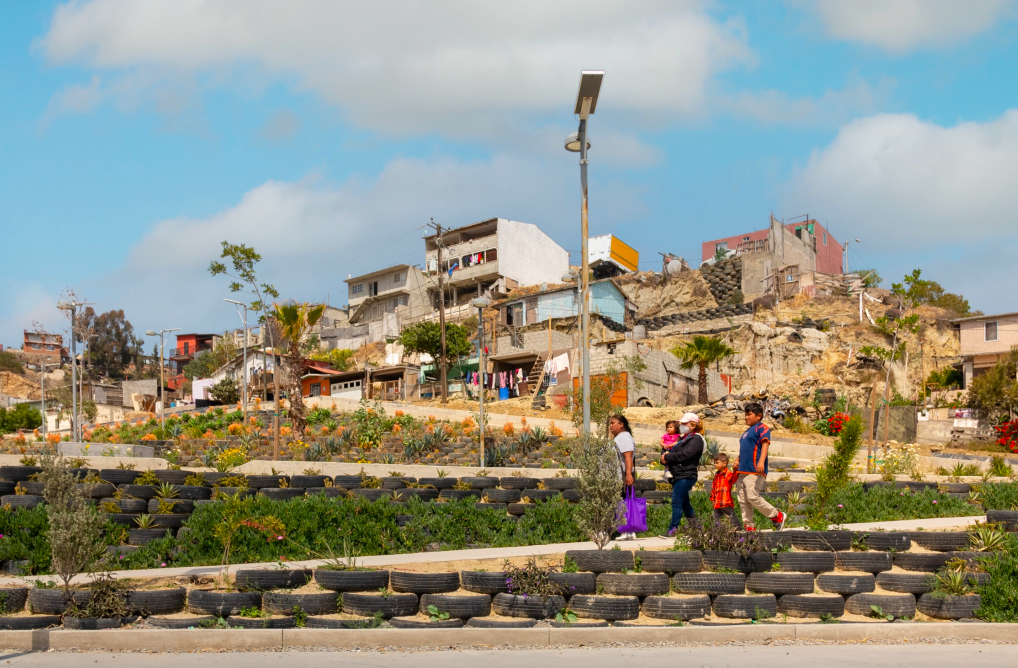
MUJŌ
Mujō develops innovative, seaweed based packaging materials that biodegrade straight after use, naturally and harmlessly. The products are made from kelp: a fast-growing seaweed which doesn’t need additional water, nor does it need agricultural land. Instead they produce oxygen (20 times faster than trees) and purify the ocean water. The cultivation potential is therefore huge (About the size of the Amazon: 6 million sq km), making the product scalable. However, it’s not just the technology that’s innovative – mujō’s focus is on unique, novel material design and about creating exciting packaging experience for B2B and B2C customers.
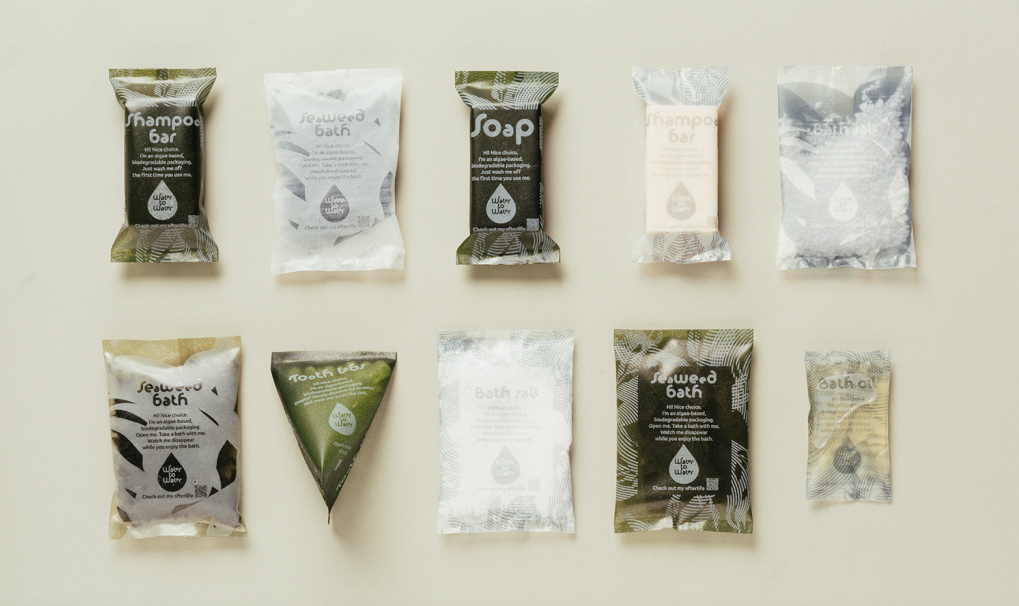
ALTERIST MARKETPLACE
Alterist is a B2C marketplace that unites a community of 71 upcycled designers in the UK and EU, who are upcycling products from existing materials that would have otherwise been discarded. Through creativity, collaboration and design, Alterist aims to change fashion industries’ attitude to textile waste.
CIRCULAR TRANSFORMATION CENTRE
Nivogo is a pioneer circular economy start-up that has Eastern Europe’s largest Renewal Centre in fashion industry powered by circularity and cutting-edge technology. As Türkiye’s leading circular transformation movement, Nivogo extends the life of products that are taken from users and brand partners and brings them back into the circular economy. Among the products, some are defective, lack barcode, customer returned & old seasoned products – most of which are still usable. At the renewal center, after determining the renewal needs of each product, products start their circular transformation journey. Products that have been renewed, sanitized and repriced with AI-based pricing technology, are packaged and transferred to sales channels.
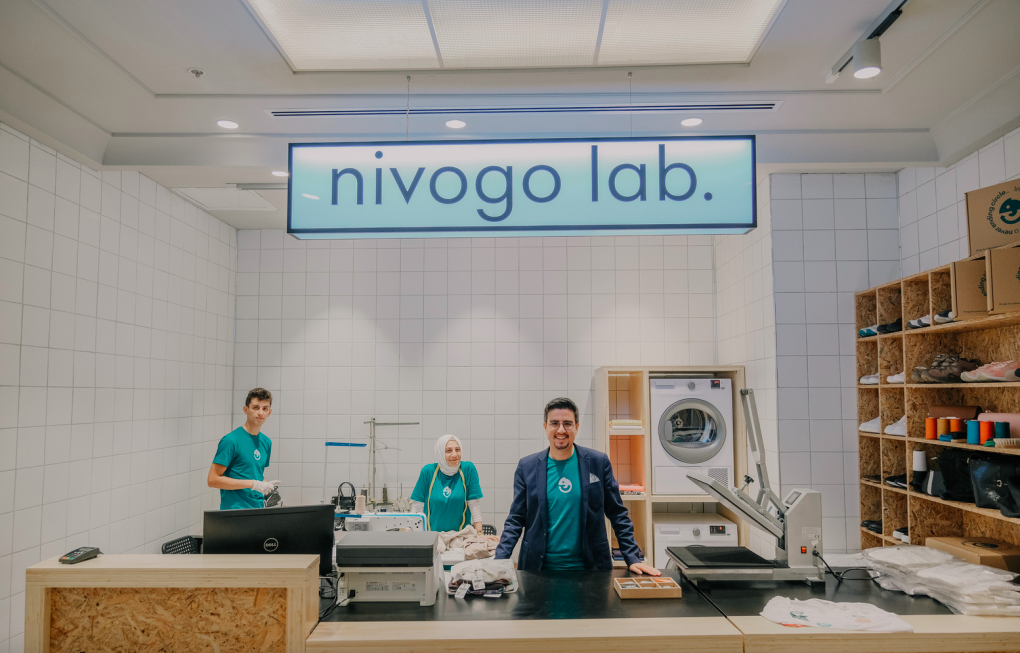
BIODEGRADABLE SANITARY PADS
Saathi has been working to address three major issues: 1) Chemical filled sanitary pads that cause rashes and irritation 2) Lack of access to sanitary pads in rural areas of India (only 32% have access) 3) Plastic waste produced by commercial sanitary pads. They have developed patented technology to process natural fiber into a highly absorbent material. The 100% biodegradable and compostable sanitary pads are made from banana fiber which is one of the most absorbent natural fibers and abundant in India. Not only are they more comfortable and safer for the user, but Saathi pads also degrade within 6 months of disposal, 1200 times faster than conventional pads.
DRINKING SEA WATER
The solution turns seawater and almost any water to drinking water at a household level using a globally co-designed Open Source Hardware device. The design is shared free of charge for local production. The production will be done locally – close to the water challenge by the user or even a social business. The necessary tools, such as 3D printers and CNC Cutters, can already be found in thousands of Makerspaces and Fab Labs around the globe.
APIDAE
Apidae is a project that seeks to improve our relationship with nature, specifically with a group of bees known as Meliponini; Species characterized by producing phenomenal honey and being the main pollinators of many native foods, as well as being essential for the conservation of the biodiversity of the ecosystems they inhabit. This system consists of breeding boxes, which function as “houses” for the hives, as well as a kit to fabricate potes and piqueras. The potes and piqueras are part of the natural structures that bees build using wax. The potes’ function is to store honey and pollen, while the piqueras help to have better control over the access of other species to the hive.
LANDLESS FOOD
We are in the year 2050. Agriculture, as we used to know it, barely exists anymore. Former biodiversity has deteriorated with human consumerism and the impacts of climate change. Further crisis arose after overfishing depleted fish stocks, and the extinction of bees caused the disappearance of many flowering plants and herbs. Our spectrum of natural flavors has been significantly reduced. This loss of agro-biodiversity not only endangers human health, but also the spirituality and cultural importance of culinary traditions. Landless Food, proposes a regeneration of humanity’s food system by introducing a new family of timely flavors that bring our culinary memories back on the table.
BALENA – BIOCIR MATERIAL
Balena has created BioCir™, a fully compostable bio-based elastomer – the first of its kind. BioCir™ is setting the standard for compostable plastics, allowing consumers and brands to experience it exactly like the plastic materials they are used to – except that it is completely biodegradable in an industrial composting environment. By creating partnerships with both brands and compost facilities, Balena’s BioCyclingsystem, a new circular model for consumer goods, allows consumers to bring it back to a designated takeback point on its way to an industrial compost facility where it will fully biodegrade in a matter of weeks.
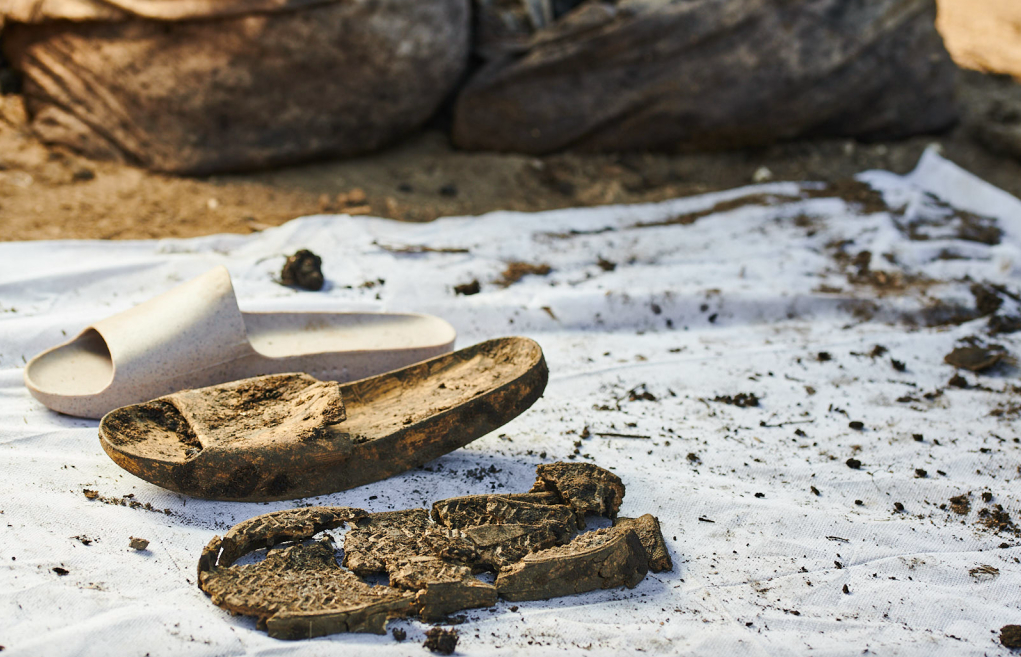
RESORTECS
Resortecs is an award-winning start-up that develops Design for Disassembly solutions. They drive circularity in fashion with heat-dissolvable stitching threads and thermal disassembly systems that make textile recycling easy. Smart Stitch™, the heat-dissolvable stitching thread with different melting points (150°C, 170°C and 190°C), enables brands to transform their products into recyclable, circular pieces from the manufacturing stage. Smart Disassembly™, their thermal disassembly system, enables recyclers to unlock higher volumes of premium-quality material, processing up to 4M garments/year with low emissions and no material damage, so that fabrics can be used over and over again.
RETHREAD AFRICA
Rethread Africa is redefining the future of sustainable circular fashion by developing the technology that turns agricultural waste into biodegradable textile fabric. Their fabric uses 99% less water than cotton, reduces CO2 emissions by 80%, and eutrophication by 51%. They using maize husk residue, enabling smallholder farmers to increase their income by 40% and designing material that breaks down to re-enrich the soil at their end of life.
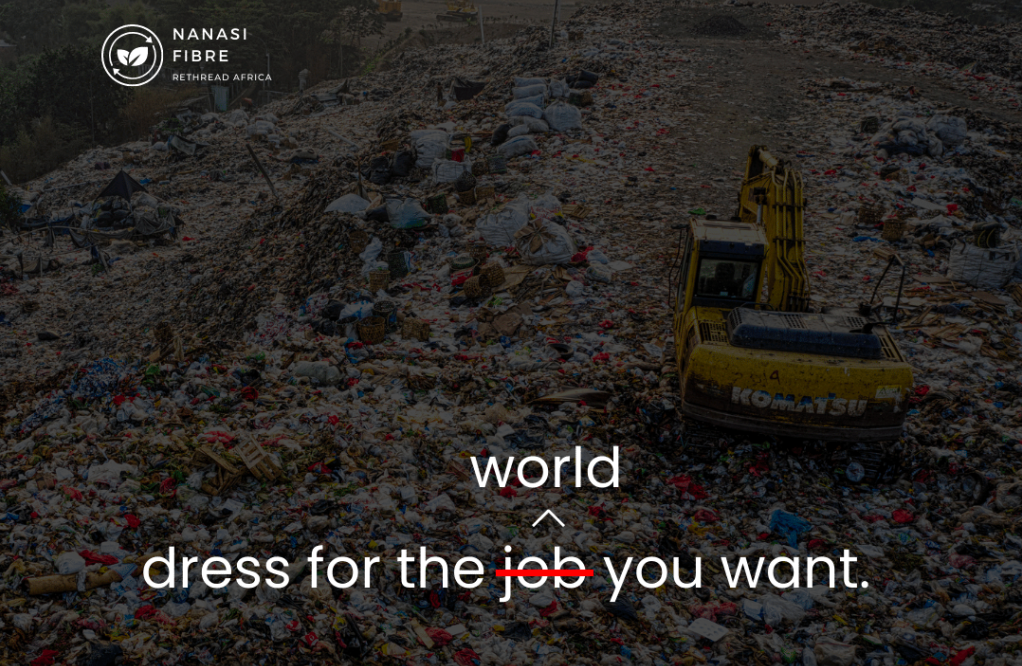
//
Article source & images: makeitcircular.whatdesigncando.com



